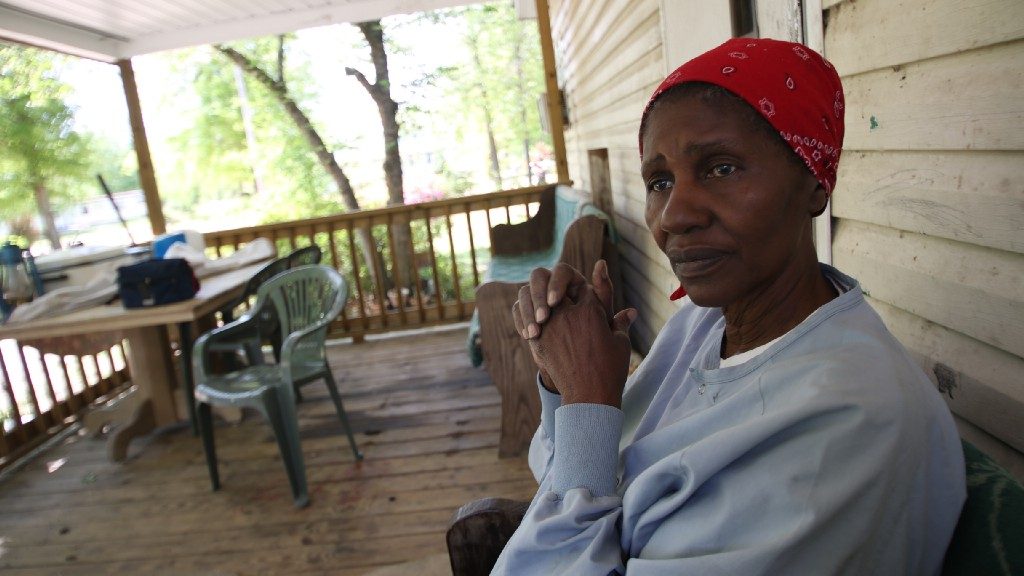June Cross is a writer and documentary producer who covers the intersection of poverty, race and politics in the United States. She has been a Professor of Journalism at Columbia University’s Graduate School of Journalism in New York since 2006. She founded a program in documentary there that is celebrating its fifth year. Her last documentary, “The Old Man and the Storm,” followed an extended New Orleans family as they struggled to rebuild their homes after Hurricane Katrina. It aired on PBS’ “Frontline” in early 2009. (Press materials)
“Wilhemina’s War” will premiere at the 2015 DOC NYC Film Festival on November 13.
W&H: Please give us your description of the film playing.
JC: “Wilhemina’s War” tells the story of a South Carolina grandmother’s fight to keep members of her HIV+ family alive at a time when most of the conversation is about the end of AIDS.
W&H: What drew you to this story?
JC: My stories choose me. But this one resonated because I had lost over three dozen friends and family to AIDS during the ’80s, and I thought this epidemic was over. I was wrong, and horrified to see how much the ’80s still lives in the South.
W&H: What was the biggest challenge in making the film?
JC: Funding it. People think AIDS is over. They don’t want to do stories about poor black people. Poor, uneducated black women don’t have a voice in society.
There is a trope among the foundations that I call the Erin Brockovich narrative — that feisty, ill-educated women take on the power structure and win. It’s a great story, but more often, feisty, ill-educated women take on the power structure and get dealt a painful life lesson. Sometimes they bounce back; sometimes they don’t. It’s a never-ending struggle. That’s reality. As a journalist, my first allegiance is to reality, so I had to find a way to tell the story that didn’t leave audiences depressed and hopeless.
W&H: What do you want people to think about when they are leaving the theater?
JC: How can they make allegiances that will support the Wilheminas of the world.
W&H: What advice do you have for other female directors?
JC: Don’t give up.
W&H: What’s the biggest misconception about you and your work?
JC: I don’t know. Tell me. Maybe that I only do stories about race? I’m certainly best known for my 1996 film “Secret Daughter,” about my own family circumstances.
But as a reporter, I’ve covered a breadth of issues, from labor, to the Pentagon, to the Middle East. I’ve also covered two presidential campaigns. I really became a filmmaker when I joined PBS’ “Frontline” in the early ’90s.
W&H: How did you get your film funded? Share some insights into how you got the film made.
JC: I got a preproduction grant through the ITVS Diversity Fund; the rest came through the JustFilms program at the Ford Foundation. Their commitment to revealing and educating about inequality proved invaluable. I hit many dead ends in the effort to get funding for the film — at the end of the day, that all forced me to make the film from my heart instead of from a funder’s mandate.
W&H: Name your favorite woman-directed film and why.
JC: That’s easy: Julie Dash’s “Daughters of the Dust.” It’s just beautiful in every way.







